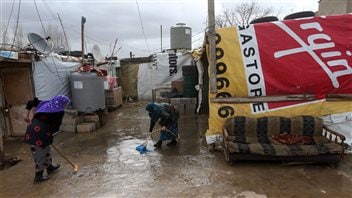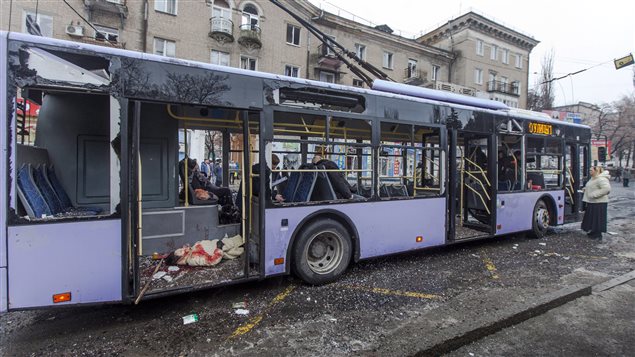“2014 was a catastrophic year for millions caught up in violence,” says a report by Amnesty International. “The global response to conflict and abuses by states and armed groups has been shameful and ineffective.”
Instead of intervening to stop mass atrocities, it says the United Nations Security Council stood in the way as countries used their vetoes to block action. For this reason, Amnesty wants the permanent members (Russia, China, U.S., U.K. and France) to pledge to not use their vetoes to block action on mass atrocities in future.
‘A dangerous year to be a civilian’
“It was a very dangerous year to be a civilian in this world of ours,” says Alex Neve, secretary general of Amnesty International Canada. “There were a number of very devastating variety of conflicts in a variety of corners of the world. And overwhelmingly, as is often the case in conflict, it was civilians who paid the price. And there’s a changing face to the kind of armed conflict we are seeing in the world.”
ListenWhile there was good news in 2014 as the Arms Trade Treaty came into force, Neve criticized Canada for “dragging its feet” and called on it and all countries to sign on to the document. Amnesty also is calling for world leaders to legislate restrictions on the use of explosive weapons.‘Draconian’ security laws
In responding to security threats, Amnesty is urging governments to ensure new laws do not undermine human rights or fuel more violence. Neve notes 2014 saw new “draconian” security laws in several countries, and that Canada is currently considering “very, very controversial and wide-reaching reforms to national security laws, many of which involve a direct challenge to important human rights.”

Amnesty denounces countries’ refusal to take more refugees
The handling of refugees is called abhorrent in the report and echoed by Neve.
“We’re deeply concerned that the international community’s response to the needs of refugees has become increasingly punitive, less and less generous at a time when exactly the opposite is required.”
In particular he highlights the plight of three million Syrians who have fled their country, and seven million more displaced within its borders and paltry efforts by countries like Canada to resettle any significant numbers.
“We cannot have another year like 2014,” says Neve. “We all have to work hard to turn that around.”







For reasons beyond our control, and for an undetermined period of time, our comment section is now closed. However, our social networks remain open to your contributions.